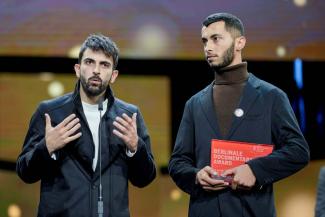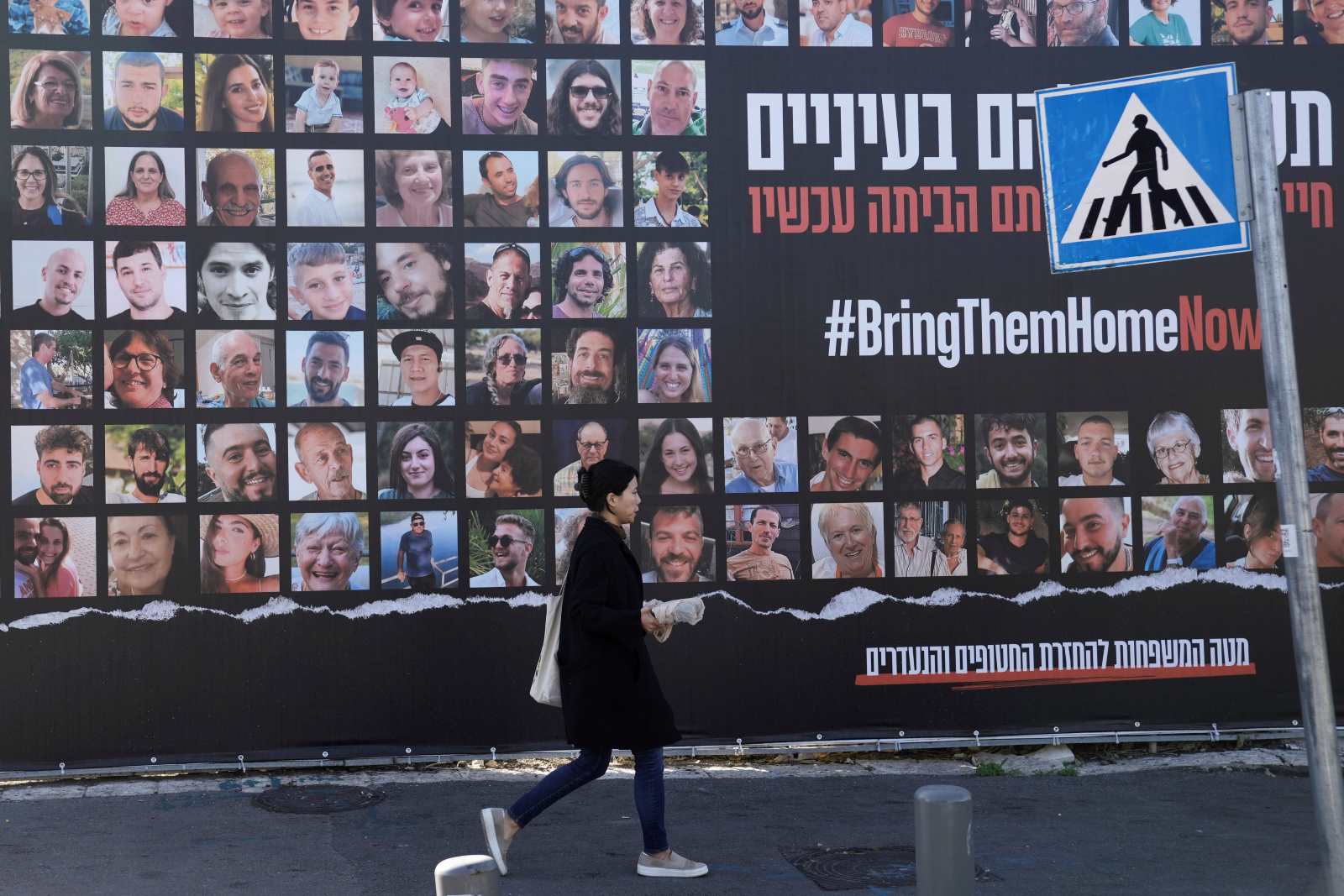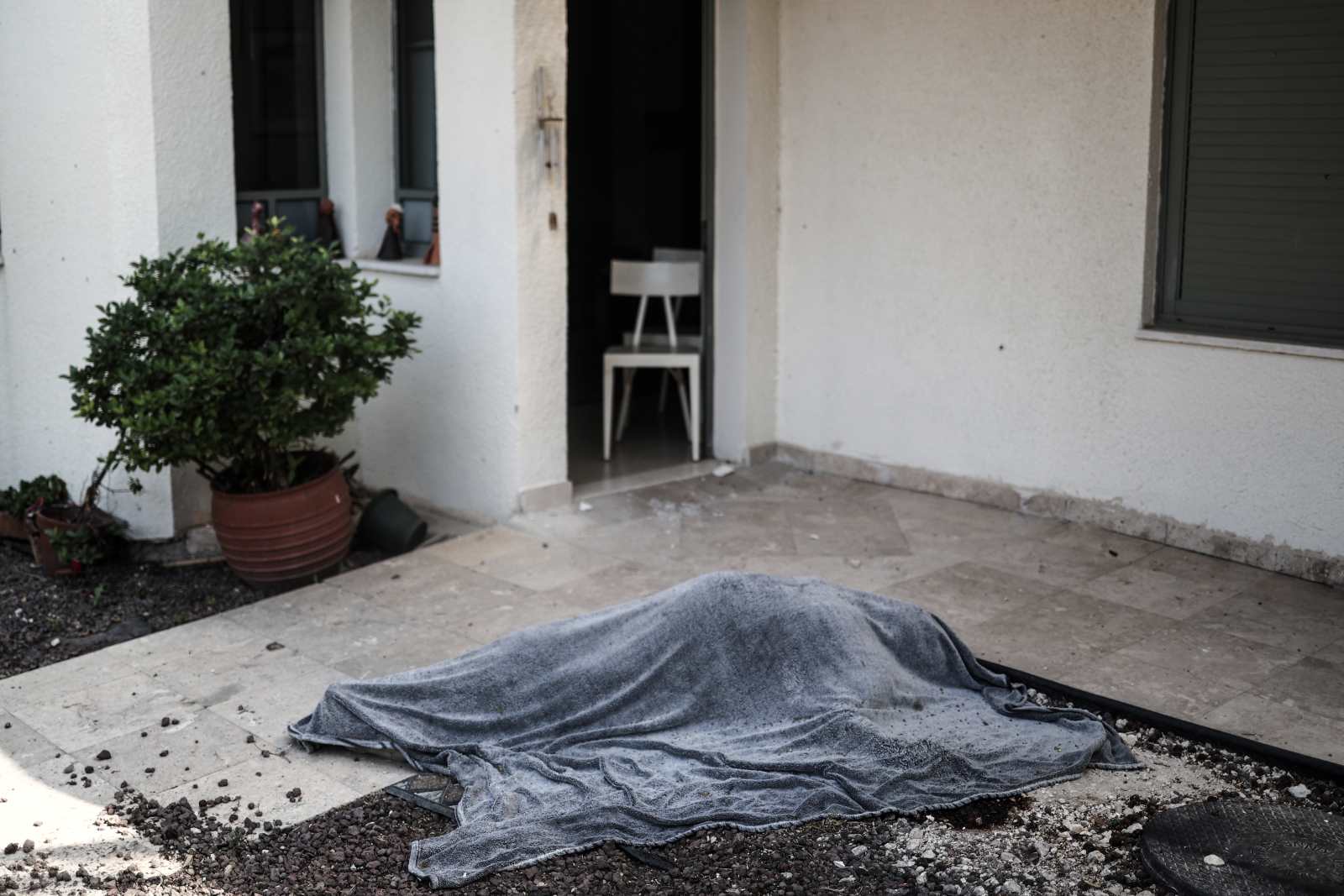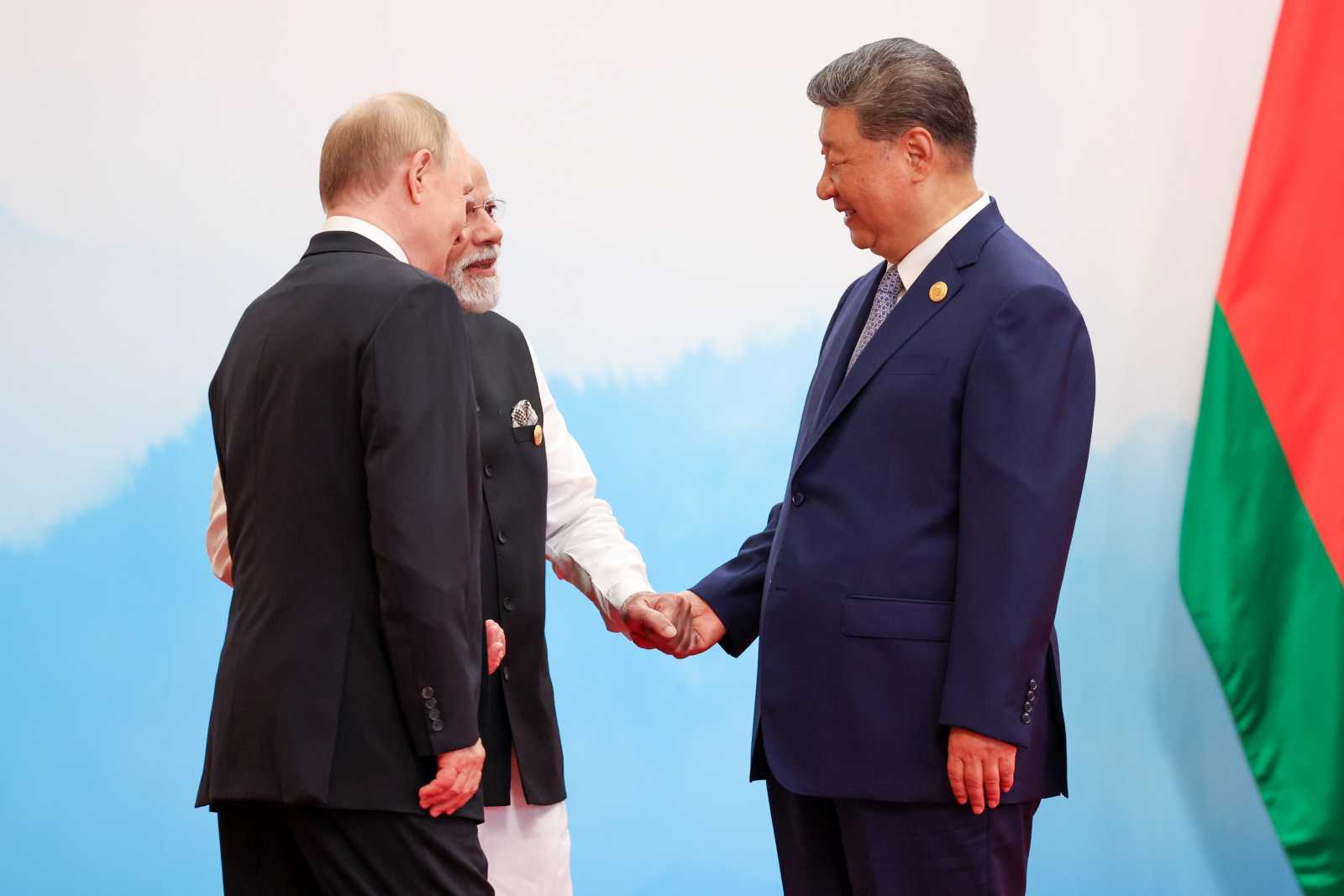Historical responsibility
Misguided fight against antisemitism

In Germany, we generally expect Muslims to disown extremism and to make a commitment to Israel’s right to exist. Otherwise, they will not be listened to.
That is not how we treat Israelis. Zionist extremists who build settlements on the West Bank are considered a fringe community that deserves so little attention that we do not expect anyone to disown them. We tend to ignore that these extremists are present in Israel’s cabinet. Just like Prime Minister Benjamin Netanyahu himself, they reject the right of any Palestinian state to exist. The settlements, by the way, are protected by Israel’s official security forces and enjoy government subsidies.
Not only Palestinian terrorism has been obstructing peace for decades; Israeli extremists bear responsibility too. Let’s not forget that Yitzhak Rabin, the peace-oriented prime minister, was murdered by a right-wing Israeli hardliner. German media, moreover, often mistakenly call radical Zionists “orthodox”. That shows how little many Germans know about Judaism. Some strains of orthodox Judaism do not only reject military service, but indeed Zionism itself.
The settler movement started decades ago and has recently been gaining momentum. Some 500,000 Israelis currently live in the West Bank. They rely on strong infrastructure, which includes highways that they alone may use. Their security walls require additional space in the densely populated occupied territory. They also severely restrict the mobility of 3 million Palestinians. Netanyahu makes no secret of wanting to annex land where, according to the Oslo agreements, a Palestinian state is supposed to be established. At a conference earlier this year, some members of his cabinet even discussed setting up new settlements in Gaza after the war.
Almost six decades of occupation and expanding settlements do not conform with human rights or international law. Defenceless people are being expropriated and even killed. Human-rights organisations report that Israelis normally enjoy impunity even after the perpetration of deadly violence. By contrast, military courts send Palestinian teenagers to prison for throwing stones during protests even when no one gets hurt. If we are serious about equality, rule of law and human rights, none of this is acceptable.
Controversial language
Whether one should accuse Israel of genocide or apartheid is a matter of serious debate. Some express outrage at the mere use of the terms, but that does very little in terms of fighting antisemitism, while it does end discussions. We must take into account that – unlike Germany’s Federal Government – the International Court of Justice (ICJ) did not consider South Africa’s genocide case against Israel to be meritless in January. Even its Israeli judge endorsed two of the preliminary obligations the ICJ imposed on Israel. He too wanted Israel to prohibit genocidal language and increase humanitarian aid to Gaza substantially.
Nonetheless, the humanitarian disaster in Gaza is now escalating into a famine. Civil-society organisations have been warning since January that this was about to happen. Germans would not have found excuses for such a scenario had it occurred during the Iraq war – and especially not, if a high-ranking US official had earlier announced that “human animals” would be cut off from food. Yoav Gallant, Israel’s defence minister, made such a statement however. There is precious little doubt that war crimes are occurring in Gaza.
We must similarly take seriously that B’tselem, an Israeli human-rights organisation, has been speaking of apartheid for years. Human Rights Watch and Amnesty International later followed suit. We normally appreciate their diligent legal analysis. In Germany, their reports on Israel and Palestine have nonetheless been neglected after being accused of antisemitism.
It is often reiterated that one is permitted to criticise Israel, and that only antisemitic rhetoric is unacceptable. Those who express grievances in diplomatic terms, however, generally remain unheard, while anyone who uses stronger language tends to be silenced with antisemitism accusations. This approach resembles Netanyahu’s right-wing populism. He will justify anything with security needs in view of rampant antisemitism around the world – as though his aggressive policies didn’t contribute to tensions and resentment.
If we want to reach the populous Muslim youth in Germany, we need a different approach. They are fully aware of Germany accepting action by the Jewish state that our government would vehemently oppose if done by any Islamic republic. They also know that we normally reject defining a nation in narrow religious or ethnic terms. Accordingly, we think India must not become a Hindu state, and we find appalling the white Christian nationalists who support Donald Trump in the USA. Israel, however, clearly prioritises Jews. A controversial legal reform of 2018 declared the right to exercise national self-determination in the state of Israel to be unique to the Jewish people.
Jewish or democratic state?
An important ongoing debate is about whether Israel will be a Jewish or a democratic state in the long run. The problem is that Israel cannot be both without a separate Palestinian state because the size of the Palestinian population between the Mediterranean and the Jordan river roughly equals the Jewish one. Netanyahu, nonetheless, claims military dominance over the entire area. His so far unsuccessful attempts to strip Israel’s supreme court of important powers, moreover, indicate what his choice between “Jewish and democratic” is. The judges have ruled in favour of minority rights several times.
There are serious proposals to drop the two-state concept in favour of a single, secular state for all faith communities in Israel/Palestine. Implementation would not be easy, of course. Those who make such proposals, however, are clearly trying to pave a road to peace. Nonetheless, any backing off from the existence of a Jewish state is deemed to be unacceptably antisemitic in Germany, where the debate on “Jewish or democratic” is not getting much attention.
For decades, German leaders have been telling Arab counterparts that they need democracy and human rights. Arabs are fully aware, however, of Germany not putting effective pressure on Israel regarding these matters in the occupied territories. Lip service the two-state solution does not protect our credibility, as long as it does not take into account the obvious truth that Israel’s government has been doing what it can to prevent such a solution for many years. German demands that Israel do more to protect Palestinians from settler violence remain similarly unconvincing, given that the entire settlement programme must stop, and Palestinians deserve full human rights (including, of course, property rights). And does it matter at all that the Netanyahu government is obviously ready to risk the escalation of the Gaza war into a regional conflagration? Our Federal Government does not want that to happen.
Not only Muslim Germans notice the double standards which are increasingly evident, for example, when Israel’s “right to self-defence” is invoked to justify what looks more and more like a revenge campaign. More than 34,000 Gazans have died in recent months, and the majority were women and children.
Unlawful Israeli action obviously does not justify horrific Hamas terrorism. Islamist atrocities, however, do not make the grizzly current Gaza scenario acceptable either. We must take seriously suffering on both sides but avoid weighing one side’s brutality against the other’s. Every innocent victim counts. Anyone who is serious about a rules-based world order, should insist on the International Criminal Court trying perpetrators on both sides.
It is true that criticism of Israel often has antisemitic undertones, but it is equally true, that philosemitism is often marked by Islamophobia. Neither phenomenon makes legitimate grievances invalid.
By the way, the current polarisation, according to which everyone is either pro- or anti-Israel, serves both sides in the Gaza war. Both always cast themselves as victims. This kind of identity politics also helps Hamas to pretend it is the only force still opposing Israeli violence. The more we discount unlawful Israeli state action, the more Hamas rhetoric resonates around the world. Too many disregard that this criminal outfit does not deserve to be called a liberation movement. After all, freedom fighters do not intentionally kickstart a war that is likely to kill tens of thousands of their own people in the course of only a few months.
In Germany, charges of antisemitism currently even serve to silence Jewish intellectuals who disagree with Israel's government. Recent action by the mayor of Berlin and the president of Cologne University were extremely awkward. The former told an Israeli film director what kind of statement he may not make in Germany because we find it unacceptably antisemitic. The latter cancelled the guest professorship of a Jewish scholar from the USA because she signed an open letter calling for boycotting Israel in support of Palestinians.
Duty among friends
“Criticising Israel is a duty among friends,” former German President Johannes Rau used to say, as one of his former staff members has told me. Heidemarie Wieczorek-Zeul and Joschka Fischer took a similar approach. She served as minister for economic cooperation and development in the coalition government of Social Democrats and Greens around the turn of the Millennium, and he was the foreign minister. Things were easier then because the Oslo agreements seemed to usher in a better two state future.
Philosemitism, however, is still not an antidote to antisemitism. Indeed, scholars from the Center for Research on Antisemitism at Technische Universität Berlin include the former in their long list of varieties of antisemitism (Ullrich et al. 2024). They also warn against politicising such a multilayered academic term. For intellectual purposes, undiscerning philosemitism is nothing more than the flipside of prejudiced antisemitism. Used in political sloganeering, the term “antisemitism” polarises, thus entrenching both anti-Jewish and pro-Jewish attitudes more deeply. When philosemitism morphs into unconditional support of Israel, things become particularly dangerous. The point is that it fuels anger and resentment when people disregard legitimate criticism of Israel as mere symptoms of antisemitism.
Germany certainly bears responsibility for Israel’s security after the Nazi genocide. Since the Jewish state, however, was not established on empty land, Germany has a responsibility for Palestinians’ security too. We can neither ignore the rights of displaced persons and their descendants nor those of long-established local communities in the occupied territories. We must also avoid any kind of identity politics that pits Jews against Muslims. Just as it is unacceptable to hold every individual Jew accountable for Israeli state action, we cannot blame Hamas terrorism on each and every Palestinian.
Aggressive rhetoric is not helpful when it comes to protecting Germany’s Jewish minority from antisemitic aggression. It does not enhance Israel’s security either. We need diligent and discerning analysis. Our country intends to promote peace, democracy and human rights internationally. Making exceptions for Israel undermines our credibility. Our diplomats become less convincing – not only in predominantly Muslim partner countries.
Literatur
B’tselem, 2021: Not a “vibrant democracy”. This is apartheid.
https://www.btselem.org/publications/202210_not_a_vibrant_democracy_this_is_apartheid
Ullrich, P. et al., 2024: Was ist Antisemitismus? (What is antisemitism? Only available in German.) Göttingen: Wallstein.
Hans Dembowski is the editor-in-chief of D+C/E+Z.
euz.editor@dandc.eu
Correction, 29 April, 1 pm Frankfurt time: A previous version of this manuscript mistakenly suggested the ICJ and not the ICC try perpetrators on both sides. We apologise.




















